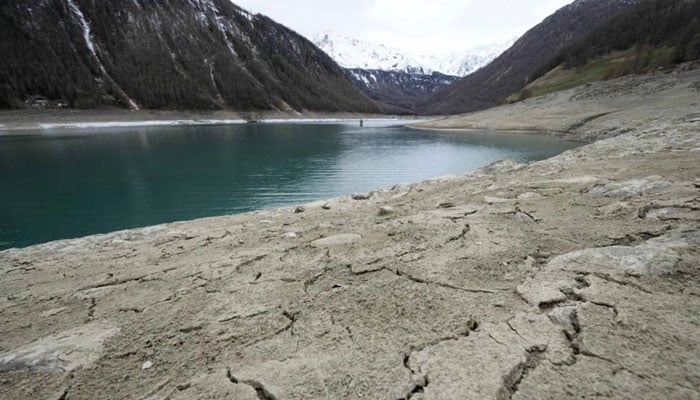Climate change takes toll on lakes as water bodies drying up
Study reveals 53% of these water bodies witnessed decrease in water storage, amounting to annual decline of approximately 22 gigatonnes
More than half of the world's largest lakes and reservoirs are experiencing a decline in water levels, posing a significant threat to global water security, according to a study published in Science.
The research, conducted by scientists from the University of Colorado Boulder, France, and Saudi Arabia, utilised satellite observations from 1992 to 2020 to assess 1,972 of Earth's largest lakes and reservoirs.
The findings revealed that 53 percent of these water bodies had witnessed a decrease in water storage, amounting to an annual decline of approximately 22 gigatonnes. Over the entire study period, a staggering 603 cubic kilometers of water, equivalent to 17 times the volume of Lake Mead, the largest reservoir in the United States, had been lost.
Climate change and unsustainable water consumption were identified as the primary drivers of the declining water levels. Rising temperatures resulting from climate change lead to increased evaporation and reduced precipitation, exacerbating the water shortage.
The study also highlighted the previously unknown impact of human activity on water loss in lakes, citing examples such as the desiccation of Lake Good-e-Zareh in Afghanistan and Lake Mar Chiquita in Argentina.
Surprisingly, the research revealed that both wet and dry regions worldwide were experiencing volume losses in lakes, challenging the conventional understanding of the "dry gets drier, wet gets wetter" paradigm commonly associated with climate change.
The study emphasised the critical role of lakes and reservoirs in freshwater storage, with these bodies accounting for 87 percent of the world's liquid freshwater resources. The implications of dwindling water levels are far-reaching, affecting approximately two billion people who live in lake basins experiencing a decline.
As the loss of freshwater lakes and reservoirs continues, it becomes imperative to implement sustainable consumption practices and prioritize climate mitigation strategies to safeguard global water security.
Failure to address this issue will inevitably lead to severe consequences in the not-too-distant future, underscoring the importance of responsible stewardship and urgent action.
-
Shanghai Fusion ‘Artificial Sun’ achieves groundbreaking results with plasma control record
-
Polar vortex ‘exceptional’ disruption: Rare shift signals extreme February winter
-
Netherlands repatriates 3500-year-old Egyptian sculpture looted during Arab Spring
-
Archaeologists recreate 3,500-year-old Egyptian perfumes for modern museums
-
Smartphones in orbit? NASA’s Crew-12 and Artemis II missions to use latest mobile tech
-
Rare deep-sea discovery: ‘School bus-size’ phantom jellyfish spotted in Argentina
-
NASA eyes March moon mission launch following test run setbacks
-
February offers 8 must-see sky events including rare eclipse and planet parade












